MNRE
Promoting Renewable Energy: Introduction to MNRE Certification
Ensure Indian market access with MNRE Certification

An Introduction To MNRE
The Ministry of New and Renewable Energy (MNRE) is a ministry of the Government of India that is mainly responsible for research and development, intellectual property protection, and international cooperation, promotion, and coordination in renewable energy sources such as wind power, small hydro, biogas and solar power
Related Services
Click here to know about the Bureau Of Indian Standard (BIS)
Click here to know about the Telecommunication Engineering Centre(TEC)
Click here to know about the Wireless Planning & Coordination (WPC)
Click here to know everything about ISI Certification Scheme
Click here to know everything about Bureau Of Energy Efficiency (BEE)
Click here to know everything about E-Waste Management
Click here to know everything about Automotive Industry Standards (AIS)
Click here to know everything about Legal Metrology
Click here to know everything about MNRE
Click here to know everything about ATEX/PESO
Other Countries
Click here to know about the Approval Process for the Canadian Market
Click here to know about the SRCC certifications
Click here to know everything about CE Marking
Click here to know everything about E Mark
Click here to know everything about Type Approval for Fiji
Click here to know everything about Type Approval for Hong Kong
Click here to know everything about India Approvals
Click here to know everything about PSE Mark
Click here to know everything about MIC Certificate
Click here to know everything about Type Approval for Malaysia
Click here to know everything about Type Approval for Russia
Click here to know everything about Type Approval for Saudi Arabia
Click here to know everything about Type Approval for South Africa
Click here to know everything about Type Approval for Singapore
Click here to know everything about Type Approval for South America
Click here to know everything about Type Approval for South Korea
Click here to know everything about NCC Certificate
Click here to know everything about BSMI Mark
Click here to know everything about Type Approval for USA
Company Strengths at a glance
Why C-PRAV?


C-PRAV As Your AIR
C-PRAV has vast experience both on the technical qualification and experience in handling BIS projects. Our professional team will assist you with the parameters listed on the left
Comprehensive Support
Entire documentation related to the Registration process.
Support as an Authorized Indian (Local) Representative for the Foreign Manufacturing Unit
Support and co-ordinate for the Registration of the Manufacturer with BIS
Local Representation
Testing of the Product from the BIS Accredited Lab as per the required Standard
Liaise with Lab for all technical issues and ensuring completion of tests on time and accurately (team has sound technical knowledge of standards and testing)
Liaison with BIS for the submission of application and other documents.
On-Going Support
Co-ordinate/draft clarification reply to BIS to address queries raised by BIS, from time to time.
Support any additional miscellaneous/incidental works like customs clearance of samples, etc throughout the approval process.
We Solve Real Problems
Some of the BIS Standard
CISPR 32 - Electromagnetic compatibility of multimedia equipment - Emission requirements
CISPR 32:2015+A1:2019 applies to multimedia equipment (MME) as defined in 3.1.24 and having a rated r.m.s. AC or DC supply voltage not exceeding 600 V. This publication covers two classes of MME (Class A and Class B).
CISPR 14 - Requirements for household appliances, electric tools and similar apparatus
CISPR 14-1:2020 specifies the requirements that apply to the emission of radio-frequency disturbances in the frequency range 9 kHz to 400 GHz from appliances, electric tools and similar apparatus as defined below, whether powered by AC or DC (including a battery).
CISPR 11 - Industrial, scientific and medical equipment
CISPR 11:2024 applies to industrial, scientific and medical electrical equipment operating in the frequency range 0 Hz to 400 GHz and to domestic and similar appliances designed to generate and/or use locally radio-frequency energy. This document covers emission requirements related to radio-frequency (RF) disturbances in the frequency range of 9 kHz to 400 GHz.

